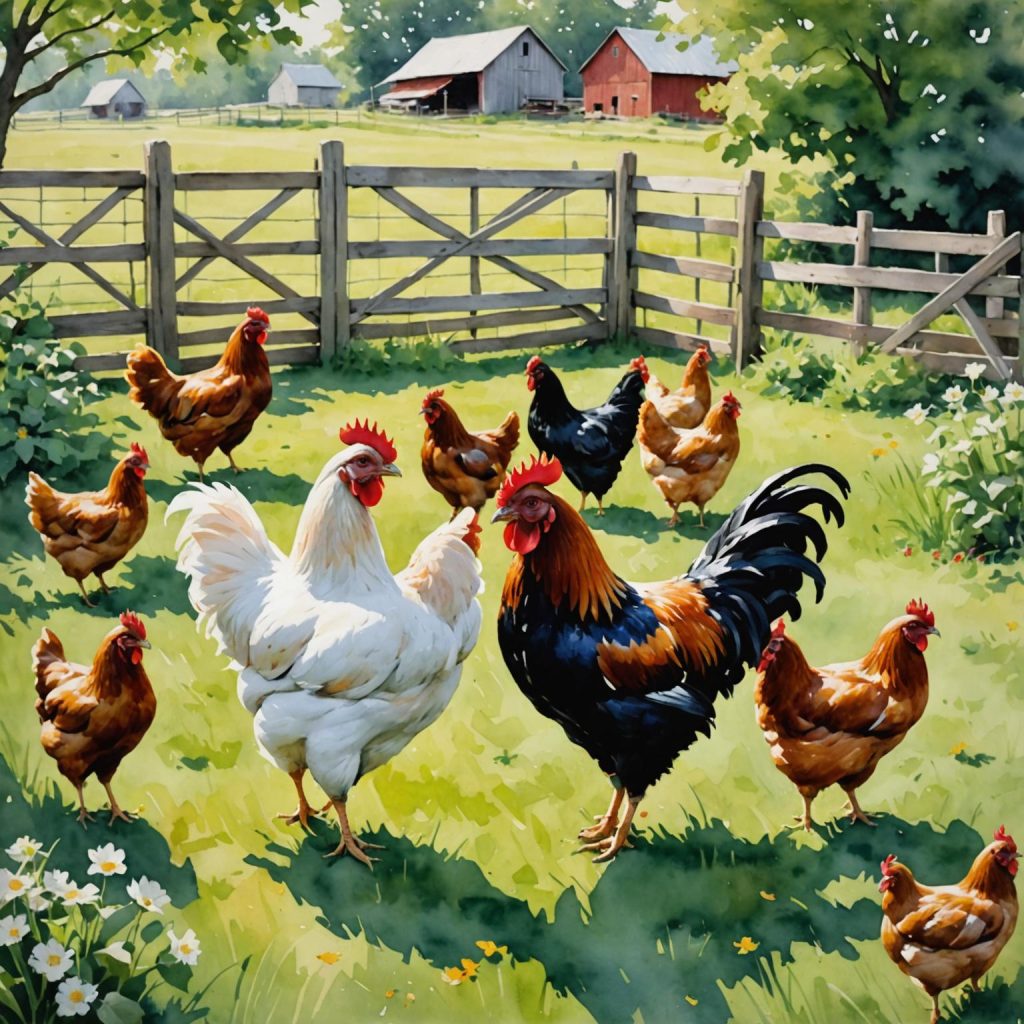Raising chickens can be a rewarding and fulfilling experience, whether you are doing it for eggs, meat, or simply as pets. Before diving into the world of chicken keeping, it’s important to understand the basics of what it takes to care for these feathered friends. Chickens require a safe and secure living environment, proper nutrition, and regular health checks to ensure they thrive. Additionally, understanding the natural behaviors and instincts of chickens can help you create an environment that meets their needs and allows them to live happy and healthy lives.
Chickens are social animals that thrive in a flock environment, so it’s important to consider the number of chickens you plan to keep and the space they will need to live comfortably. They also require protection from predators, such as foxes, raccoons, and birds of prey, so a secure coop and run are essential. Additionally, chickens need access to fresh water, a balanced diet, and regular health checks to ensure they stay healthy. By understanding these basic needs, you can create a suitable environment for your chickens to thrive.
Table of Contents
Selecting the Right Breed for Your Needs
When it comes to raising chickens, there are countless breeds to choose from, each with its own unique characteristics and traits. Whether you are looking for chickens that are good layers, meat producers, or simply friendly pets, selecting the right breed for your needs is crucial. Some popular breeds for egg production include Rhode Island Reds, Leghorns, and Australorps, while breeds like Cornish Cross and Plymouth Rocks are known for their meat production. If you are looking for friendly and docile chickens, breeds like Silkies and Orpingtons are great options.
In addition to considering the purpose of raising chickens, it’s important to think about the climate and environment in which you live. Some breeds are better suited for cold climates, while others thrive in warmer temperatures. Additionally, some breeds are more prone to certain health issues or require specific care, so it’s important to do your research before selecting a breed. By taking the time to consider your specific needs and the characteristics of different breeds, you can choose the right chickens for your flock.
Creating the Ideal Living Environment for Your Chickens
Creating a suitable living environment for your chickens is essential for their health and well-being. A secure coop and run are necessary to protect your chickens from predators and provide them with a safe place to roost at night. The coop should be well-ventilated and provide enough space for your chickens to move around comfortably. Additionally, nesting boxes should be provided for egg-laying hens, and perches should be available for roosting.
In addition to the coop, a run or outdoor space is important for allowing your chickens to exercise and forage for food. The run should be enclosed with wire mesh to prevent predators from entering and should provide enough space for your chickens to move around freely. Providing access to fresh grass, insects, and other natural elements can help keep your chickens healthy and happy. Additionally, providing dust baths and other enrichment activities can help prevent boredom and reduce stress in your flock.
Feeding and Caring for Your Chickens
Proper nutrition is essential for keeping your chickens healthy and productive. A balanced diet that includes a mix of grains, protein, vitamins, and minerals is crucial for egg production, growth, and overall health. Commercial chicken feeds are available in different formulations depending on the age and purpose of your chickens, so it’s important to choose the right feed for your flock. Additionally, providing access to fresh water at all times is essential for keeping your chickens hydrated and healthy.
In addition to providing a balanced diet, regular health checks are important for ensuring your chickens stay healthy. Checking for signs of illness or injury, monitoring egg production, and keeping an eye on their overall behavior can help you catch any issues early on. Additionally, providing regular grooming and parasite control can help prevent common health issues in your flock. By staying on top of their nutrition and health care, you can ensure that your chickens stay happy and healthy.
Health and Wellness for Your Flock
Maintaining the health and wellness of your flock is crucial for their overall well-being. Regular health checks can help you catch any issues early on and prevent them from spreading throughout your flock. Common health issues in chickens include respiratory infections, parasites, and egg binding in hens. By monitoring their behavior, egg production, and overall appearance, you can catch any signs of illness or injury early on.
In addition to regular health checks, providing a clean living environment is important for preventing illness in your flock. Regularly cleaning the coop and run, providing access to fresh water, and practicing good hygiene when handling your chickens can help prevent the spread of disease. Additionally, providing a balanced diet with access to fresh grass and natural elements can help keep your chickens healthy and happy. By staying on top of their health care and providing a clean living environment, you can ensure that your flock stays healthy.
Harvesting and Using Fresh Eggs
One of the many benefits of raising chickens is the opportunity to harvest fresh eggs from your flock. Whether you are raising chickens for eggs or simply as pets, collecting fresh eggs can be a rewarding experience. Eggs should be collected daily to prevent them from being damaged or eaten by predators. Additionally, storing eggs in a cool place can help prolong their shelf life.
Fresh eggs can be used in a variety of recipes, from breakfast dishes like omelets and frittatas to baked goods like cakes and cookies. Using fresh eggs in your cooking can add a rich flavor and vibrant color to your dishes. Additionally, eggs can be preserved by pickling or freezing them for later use. By harvesting fresh eggs from your flock, you can enjoy delicious and nutritious eggs straight from your own backyard.
Troubleshooting Common Issues for Beginner Chicken Keepers
As a beginner chicken keeper, it’s common to encounter challenges when raising chickens for the first time. Common issues such as egg production problems, predator attacks, or health concerns can arise when caring for chickens. By staying informed and proactive, you can troubleshoot these issues and ensure that your flock stays healthy and happy.
Egg production problems can occur due to factors such as age, stress, or nutrition. By monitoring their behavior and providing a balanced diet with access to fresh water and natural elements, you can encourage healthy egg production in your flock. Additionally, protecting your chickens from predators by securing the coop and run can help prevent attacks on your flock. Regular health checks can also help catch any signs of illness or injury early on. By staying informed about common issues and being proactive in addressing them, you can ensure that your flock stays healthy and happy.
In conclusion, raising chickens can be a rewarding experience that provides fresh eggs, meat, or simply companionship. By understanding the basics of chicken keeping, selecting the right breed for your needs, creating an ideal living environment, providing proper nutrition and care, maintaining the health and wellness of your flock, harvesting fresh eggs, and troubleshooting common issues, you can ensure that your chickens thrive in their new home. With proper knowledge and care, raising chickens can be a fulfilling endeavor that brings joy and satisfaction to both you and your feathered friends.
Meet Walter, the feathered-friend fanatic of Florida! Nestled in the sunshine state, Walter struts through life with his feathered companions, clucking his way to happiness. With a coop that’s fancier than a five-star hotel, he’s the Don Juan of the chicken world. When he’s not teaching his hens to do the cha-cha, you’ll find him in a heated debate with his prized rooster, Sir Clucks-a-Lot. Walter’s poultry passion is no yolk; he’s the sunny-side-up guy you never knew you needed in your flock of friends!







